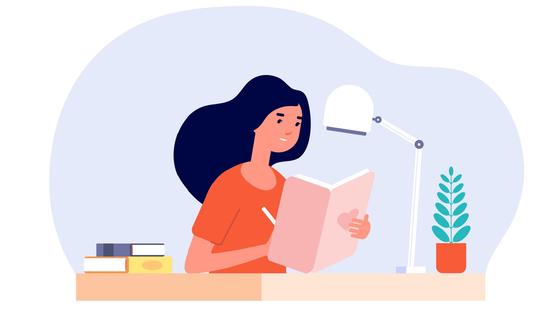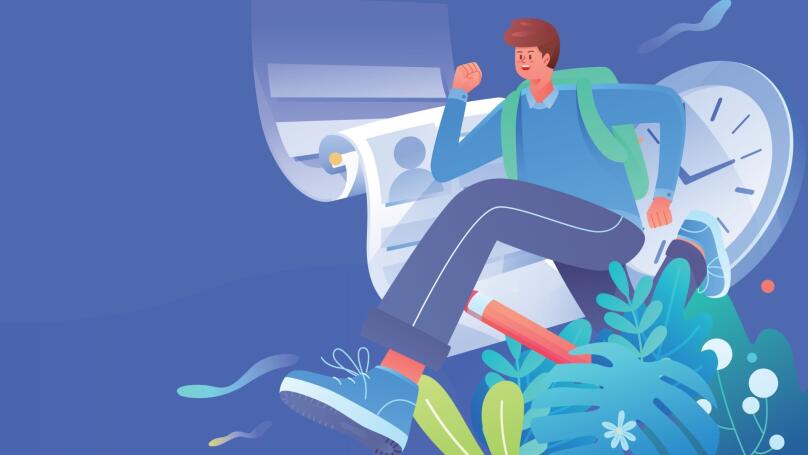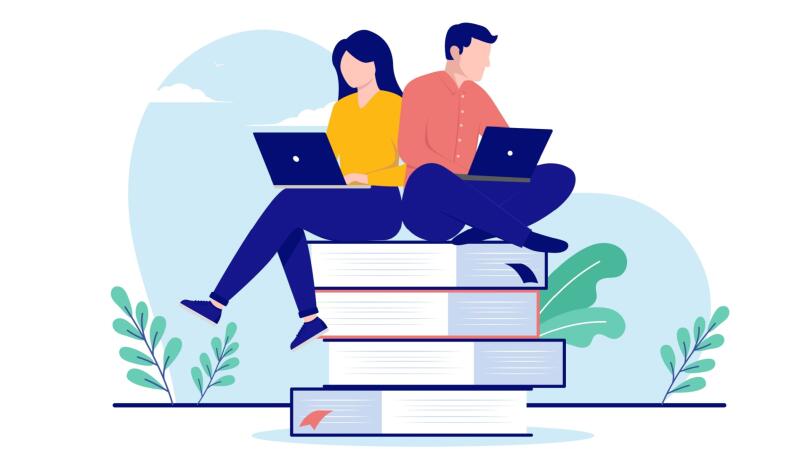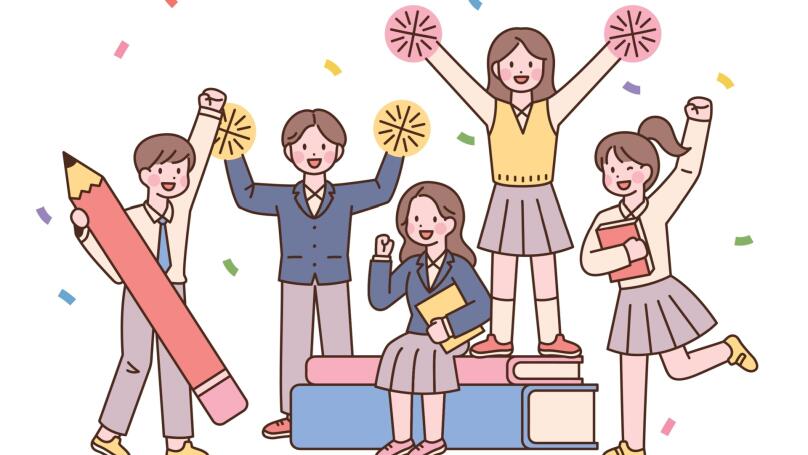Eight Things That Make Completing Your Homework Fast
School is already a tough place, and doing daily homework makes it unbearable.

After all, when you get home after a busy day, the last thing you want to do is sit down with your textbooks and notebooks again. However, here lies the bad news: we must deal with homework throughout our lives, not just from the first grade to the last. I mean, in today's world, adults are also constantly learning, and there are household chores that are also a kind of "homework" and require attention, despite how reluctant to start them. In short, the ability to do homework quickly and efficiently will undoubtedly be useful for you, so here are eight ways to develop this skill and make your school life more manageable.
Firstly, here are a few facts to start with. Statistically, 74% of children and teenagers cite homework as the primary source of stress. It isn't surprising: according to the same research, most spend about three to four hours a day on them, and so for many years, imagine! Indeed, why is so much time spent on homework in the first place? There could be several reasons:
-
The syllabus is too complicated and continuously becoming more complex as the modern world around us does. After all, new technologies require new knowledge.
-
Lack of time management skills, the inability to allocate your time and priorities competently.
-
Physical and emotional fatigue, which, in principle, makes it difficult to perform any work.
-
Lack of motivation, i.e., understanding homework goals and why you should do them.
-
Attention deficit and concentration problems.
It's a good idea to identify one (or even two or three) of these causes in yourself from the start.
In the former case, you'll likely need the help of a tutor, parent, or mentor, and in the latter case, a specialist if the problem is a disorder. However, the tips below can also help you-try starting with them anyway!
Create an Exclusively "Work" Area.

This basic rule should not go unneglected, even if it seems obvious and already done to you, and ensure it is. Where you do your homework should fulfill the following criteria:
-
Distractions are absent nearby, such as noisy appliances running, a parrot cage across the street, etc.
-
Physical comfort and convenience- adjustable your chair, sufficiently high table, space to turn around and assume the desired position without difficulty, etc.
-
Maintain a clean, orderly, and minimalist environment. This means there aren't any wrappers, unnecessary books, figurines, etc.
-
It is a place where you ONLY learn and nothing else!
The last criterion may not be feasible in practice due to limited living space, so it is optional. However, having a separate working area from the one where you play computer games, paint pictures by numbers, or read is good. After all, our brain is a tricky creature! It remembers how much fun you were having on this spot an hour ago and will try to encourage you to return to this activity. Simply put, you'll be more likely to be distracted by being in a place where many activities other than homework are available. If, on the other hand, you sit where you never do anything but homework, it will be easier for your brain to focus.
It's obvious, of course, not to forget the gadgets about putting your smartphone on "Do Not Disturb" mode while doing assignments and taking it to another room to create an extra obstacle between it and your desire to "just check messages."
Sit Down for Homework Right After School
A German psychologist named Hermann Ebbinghaus found that for better memorization and absorption of material, you need to repeat at further intervals-first twenty minutes after the first familiarisation, then forty minutes, and then after about eight hours. If you do your homework right after school, you'll be just plus or minus these intervals. Also, right after school, we are more focused and concentrated; we have not yet had time to "relax" and switch our attention to rest and entertainment, so sitting at the desk will be much easier. Neither the brain nor the body will resist as they are still in tone. If you do your homework in the evening, it takes twice as many resources at least to remember what you went over today and how to do it.
What should you do if you have some activities and classes right after school, that is, if you don't have time to do homework at once? After all, children and teenagers often engage in sports creativity alongside school, attending various sections and additional classes.
If you feel exhausted at the end of the day, postpone the tasks until the next day. While you'll have to get up early to accomplish this, you can go to bed earlier and get a whole night's sleep. You can also postpone non-urgent assignments until the evening if no other sections are scheduled after school.
Alternate Subjects and Shift Your Attention

Why are lessons only forty-five minutes long? It is because teenagers cannot focus on the same subject for longer than that, and why spending more than an hour on a task is useless: if you can't do it or don't have time to do it, put it off. Change the type of activity: before you calculate an equation, now read a work of literature or make a map of geography. It would be best to switch at least once an hour; then, you would be less tired, and it would not seem like you are doing one task forever.
In Lectera's "How to Learn to Learn" course, you'll learn how to enjoy even the most tedious lessons, manage your time effectively, and reduce your fatigue even with a busy school schedule.
Divide Your Work into "Rounds" of Thirty Minutes Sessions
You can take these breaks before switching to another subject or while working on the same thing. This method is called "Tomato" (don't ask why): you work hard and concentrate for a while, rest for a while, and so on, one at a time, the whole cycle. Your rest mustn't be "stuck" in the phone or sitting at a desk. Go for a stroll, do some physical exercises, look out the window at who is doing what, or have a snack of chocolate with tea. Breaks should also be short - thirty hours studying, five to seven minutes rest, no more.
Make a Homework Plan for the Evening
Following a plan is always easier than solving it on the fly, even though it may seem the opposite. A plan at least reduces anxiety and the feeling of the immensity of the work. So, instead of grabbing the first textbook from your rucksack, map out the order in which you will do what. Including immediately designated:
-
Priorities and sequence. You can sort items or tasks into categories A (the most important), B (important, but not in the first place), and C (unnecessary; you can put it off for later). After all, it is silly to tackle a task that you must only hand in at the end of the week when you have not yet written an essay that the teacher will demand tomorrow.
-
The amount of time you allocate for each task. Remember the rule: the more time you allocate to a task, the more time it takes. If there is a lot of time, our brain tends to fill the allotted time instead of completing the task as quickly as possible. That is, we work faster and are more productive when rushing. So try cutting your time for each task by at least half and put this paradox to the test!
-
Check your list and cross off what you've done as you work. The sight of crossed-off things, especially when there are many of them, is very motivating!
Give Yourself an Incentive or Reward Afterwards

Lack of motivation is the most common problem school students face. Yes, not all the subjects and knowledge you have to master now are interesting to you and will be helpful in the future. It's a fact. Therefore, if the subject does not appeal to you and you are not motivated to connect your future professional life with it, think of another more personal and suitable motivation. It does not have to be related to school. So, the motivation can be:
-
A perfect report card, which you will receive after improving in one subject.
-
You will go to the movies right after you do your homework, so buy a ticket right away; it will encourage you not to procrastinate and meet the deadline!
-
An opportunity to move on to the next and more exciting topic when you've got a handle on the tedious and difficult one you're studying now.
-
When you finish work, eat your mum's delicious biscuits or cookies.
The opportunity to finally play your favorite game or take a good nap is also a motivation if there is no other. The main thing is to determine for yourself in advance what you will get if you do your homework right now. It's easier to work for something than despite it.
Divide Big Tasks into Small Steps
You're not trying to shove the whole pie in your mouth at once, right? You cut off a piece and eat it first, then cut off another piece, and so on. Follow the same principle with your homework. So, if you are assigned to prepare a large project on chemistry, break this preparation into sections. First, just read materials on the topic, study what you will have to deal with, and then start gathering valuable information that you can use. Then, plan, do the first experiment, do the second, and so on. The smaller the steps you must take to complete the whole task, the easier it will be for you to move from one to the next, and the task won't look so scary if you clearly understand where to go, albeit slowly and gradually, but only forward!
You will learn more about how to keep up with everything, find time to meet with friends between classes, and get rid of fatigue in the course "Learn to Manage Time. Time Management for Teens."
Lectera’s Online Courses by topic
Do Your Homework with Someone Else
It's not just about having a tutor to help you learn complex material and stay motivated because you can't fool around under someone else's supervision. You can also create a study group with your classmates or friends who need educational and moral support and study together. Today, you can even organize this online, for example, via Zoom or Skype.
The key is that no more than four people should be in such a group; otherwise, coordination will be problematic. Also, ensure that such meetings do not turn into friendly gatherings. It is good if one person gets chosen as a "moderator" who will monitor the process and stop extraneous discussions. Ideally, you and the group should have the same homework, but you can still practice this approach if you are in different grades or schools. Just agree that you will ask each other for advice when you need it or discuss difficulties. The "business" atmosphere, with everyone stuck in their notebooks and thinking hard, will motivate you to keep up.
Finally, the last thing you want to do when you get home from school is study again. Nevertheless, there's no getting away from it, so tackling your assignments quickly and ruthlessly is much better than prolonging the agony and adding to your troubles at school. Also, do not forget that you need to rest appropriately. Try different leisure activities, watch your sleep, use our tips, and take Lectera's course "How to Learn to Learn" over the weekend to do your homework even easier!
Share this with your friends via:
Latest News

In the UK, £23 million has been allocated for the expansion of the EdTech Testbed program — pilots of educational technologies in schools and colleges.

In the US, Tuskegee University announced the launch of Tuskegee University Global Campus (TUGC) — a new online platform for distance learning.

A significant stage in the development of the alternative education system has begun in West Northamptonshire in the UK: the County Council is actively calling on parents, guardians, and trustees to participate in shaping the future of this key area.

Outwoods Primary School in Atherstone, Warwickshire, having experienced deep sadness after the loss of their famous cat, Silla, has found solace in a new pet – a Maine Coon named Aloysius O’Hara.

In modern universities, artificial intelligence, and in particular ChatGPT, is rapidly transforming from a controversial tool into a full-fledged student assistant.












 9 Career Mistakes Young Professionals Make
9 Career Mistakes Young Professionals Make
 £23 million allocated for the expansion of EdTech Testbed in the UK
£23 million allocated for the expansion of EdTech Testbed in the UK
 Tuskegee University launches Global Campus — a new online platform
Tuskegee University launches Global Campus — a new online platform
 Test: How Psychologically Mature Are You? Check Your Inner Foundation.
Test: How Psychologically Mature Are You? Check Your Inner Foundation.
 Test. Check Your Social Media Dependency Level!
Test. Check Your Social Media Dependency Level!
 Test: What Business is Right For You?
Test: What Business is Right For You?
